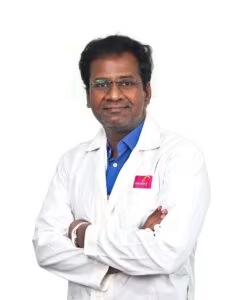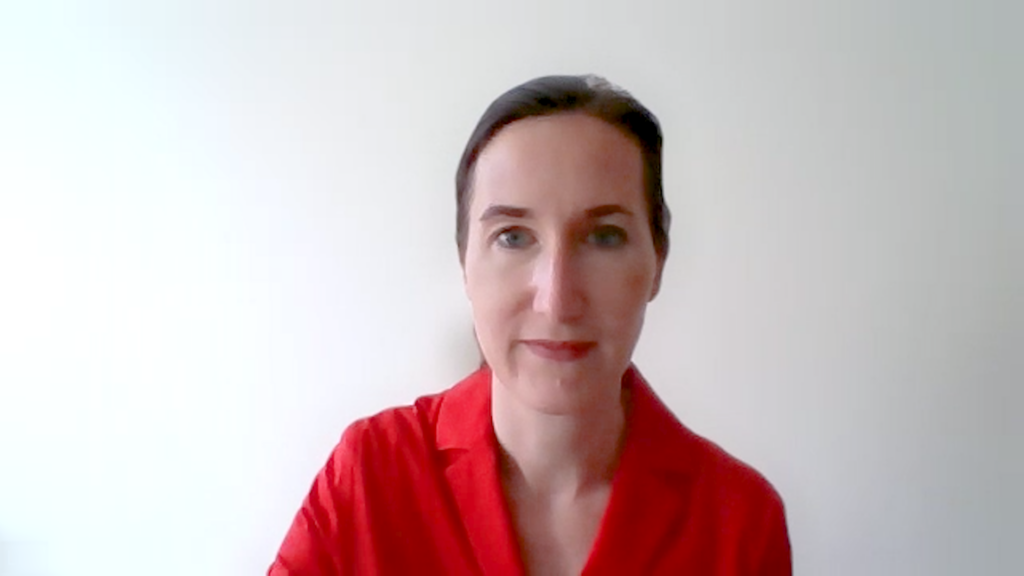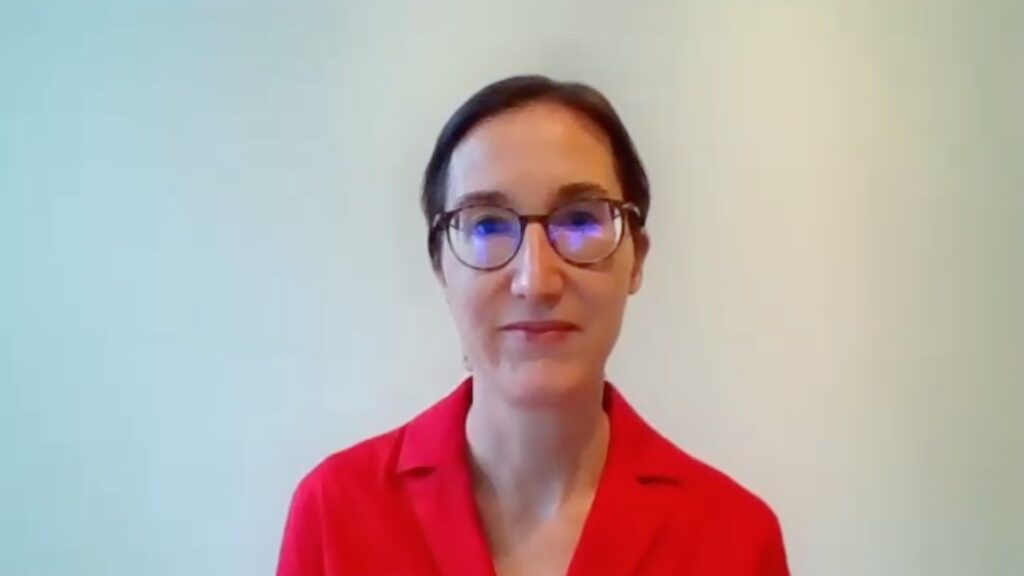 As part of our Future Leaders series, which recognizes the exceptional achievements of early-career physicians, we had the opportunity to speak with Dr Santhanam Sham, an emerging leader in the field of rheumatology.
As part of our Future Leaders series, which recognizes the exceptional achievements of early-career physicians, we had the opportunity to speak with Dr Santhanam Sham, an emerging leader in the field of rheumatology.
Dr Sham is a Senior Consultant Rheumatologist at Kauvery Hospitals, Chennai, India. In 2009, he earned his MD in general medicine from Kasturba Medical College and went on to specialise in rheumatology at Madras Medical College, Chennai. Dr Sham has extensive experience in treating a wide range of rheumatic diseases, with his current research focusing on systemic lupus erythematosus (SLE), vasculitis and interstitial lung disease (ILD). He is dedicated to raising awareness of rare diseases to enhance patient outcomes and actively participates in continuing medical education (CME) activities and awareness programs.
Dr Sham holds several editorial positions, including Associate Editor for Rheumatology and the Indian Journal of Rheumatology, Associate Education Editor for the Journal of the Royal College of Physicians of Edinburgh (JRCPE) and Academic Editor for PLoS One. Dr Sham also coauthored ‘Rarer Arthropathies’ and edited the book ‘Lab Investigations in Rheumatic Diseases’. He is also a member of the Indian Rheumatology Association, the Association of Physicians of India, Indian Medical Association (IMA) and Tamilnadu Medical Council.
In this Q&A, we sit down with Dr Sham as he kindly shares his insights into his career journey, personal achievements and long-term ambitions in the field of rheumatology.
Q. What inspired you to pursue a career in rheumatology, and how did you develop a particular interest in autoimmune diseases, such as rheumatoid arthritis (RA), systemic lupus erythematosus (SLE), psoriatic arthritis (PsA) and vasculitis?
As a medical student, I have always been interested in and fascinated by clinical medicine. There are various subspecialties in internal medicine, but very few, like rheumatology, maintain their connection to it. All rheumatological diseases involve multiple systems and have a myriad of clinical manifestations. As clinicians, we must be like Sherlock Holmes, trying to solve the case with the various clues available. We determine treatment based on pattern recognition and a syndromic approach. We may not be able to label these diseases initially, as they can either evolve or present as an overlap of two diseases. Even with immunological investigations, we can encounter a typical disease with negative serology, or vice versa, where the challenge lies in informing the patient that the blood investigations are positive, but that we can wait to initiate treatment. Similarly, with the dissection of various immunological pathways, the diagnosis and management of AIRDs [autoimmune rheumatic diseases] using targeted therapies have made this field even more fascinating. It is a specialty that has undergone a sea change in the last two decades.
Q. As clinical practices in rheumatology continue to evolve, how have you seen the field change in recent years? Looking ahead, what changes do you anticipate in the clinical management of autoimmune diseases, and how are you preparing for them in your practice?
There is a greater understanding of the various immunological pathways involved in the pathogenesis of rheumatic diseases. Consequently, we now have a plethora of DMARDs (disease-modifying anti-rheumatic drugs) available, ranging from biological DMARDs to targeted synthetic DMARDs, such as JAK inhibitors. A significant amount of research is ongoing, spanning from genomics to multi-omics, which paves the way for personalized medicine in the management of various AIRDs. The role of CAR-T [chimeric antigen receptor-T] therapy appears promising in treating rheumatic diseases like SLE. With the introduction of digital tools and artificial intelligence, the future looks exciting and promising for managing AIRDs. As clinicians, we must stay updated and ready to embrace these advances to provide better patient care.
Q. In addition to your clinical work, you’ve made significant contributions in editorial, academic, and teaching roles. Can you share some of the personal achievements you’re most proud of in these areas, and how have they enriched your overall career in rheumatology?
Some academic work should consistently complement our clinical practice. This may be teaching, mentoring, peer-reviewing, or other aspects of medical academic publishing. I have enjoyed teaching bedside medicine to my juniors since my postgraduate days. I developed an interest in medical academic publishing during my rheumatology training and later furthered it with guidance from my mentor. I felt proud to be appointed Associate Editor for Rheumatology (Oxford) and the Indian Journal of Rheumatology. Similarly, when I edited the book ‘Lab Investigations in Rheumatic Diseases’, it was a dream come true. These academic roles have helped in my continuous professional development and indirectly in providing better clinical care. Travelling this far was a pleasant surprise for someone who just wanted to have a few publications under my name. I was fortunate to have a good mentor and supportive friends to aid my academic growth.
Q. What are your long-term ambitions, and how do you envision your work contributing to improving patient outcomes?
My long-term ambition is to make the management of AIRDs more patient-centric. I would like to empower patients by making them more aware of the disease, the management and expected outcomes. I want to use digital health and AI (artificial intelligence) to make this possible, for example, to develop a robust application or some interface for patients to self-monitor their progress and be rightly informed on the various options. In many developing countries, healthcare expenses are a big burden on patients and they aren’t reimbursed. In particular, many AIRDs are not covered under insurance. I want to contribute in some way to break this and help patients. Though this is just the beginning, I have a long way to go. I want to edit a single-author book on ‘clinical rheumatology’ and become an editor-in-chief of a reputable rheumatology journal. Similarly, though I have published papers, I would like to work on a single project that might be ground-breaking to provide better patient care. My other dream is to start a training program for rheumatology at my place of work.
Q. What advice would you give to those starting out and considering a career in rheumatology?
Rheumatology is a fascinating field for all doctors interested in clinical medicine. The ongoing research has been phenomenal, dissecting various molecular pathways and discovering new therapies targeting these pathways. The concept of personalized medicine is captivating, and with all these advancements, clinicians can undoubtedly make a meaningful contribution to patient care. Therefore, anyone planning to start their career in rheumatology should focus on the basics of history taking and clinical examination, which assist in diagnosing most cases. All investigations support the clinical diagnosis and depend on pre-test probability. They should be ready to embrace the new advancements, as rheumatology has undergone tremendous changes in the last two decades.
Rheumatology is a speciality for anyone interested in being an internist. It’s no longer about morbidity and providing pain relief, as newer molecules have revolutionized the management of these diseases and it is all about providing the best quality of life to patients.
Support: This short article was prepared by touchIMMUNOLOGY in collaboration with Dr Santhanam. No fees or funding were associated with its publication.
Cite: Santhanam Sham. Advancing Rheumatology Through Innovation, Education, and Patient-Centred Care: An Interview with Future Leader Dr. Santhanam Sham. touchIMMUNOLOGY. 7 April 2025.
More content in the field of rheumatic diseases.

touchIMMUNOLOGY is celebrating the brightest rising stars in the immunology community, who are set to shape the future of the field.
SIGN UP to TouchIMMUNOLOGY!
Join our global community today for access to thousands of peer-reviewed articles, expert insights, and learn-on-the-go education across 150+ specialties, plus concise email updates and newsletters so you never miss out.









